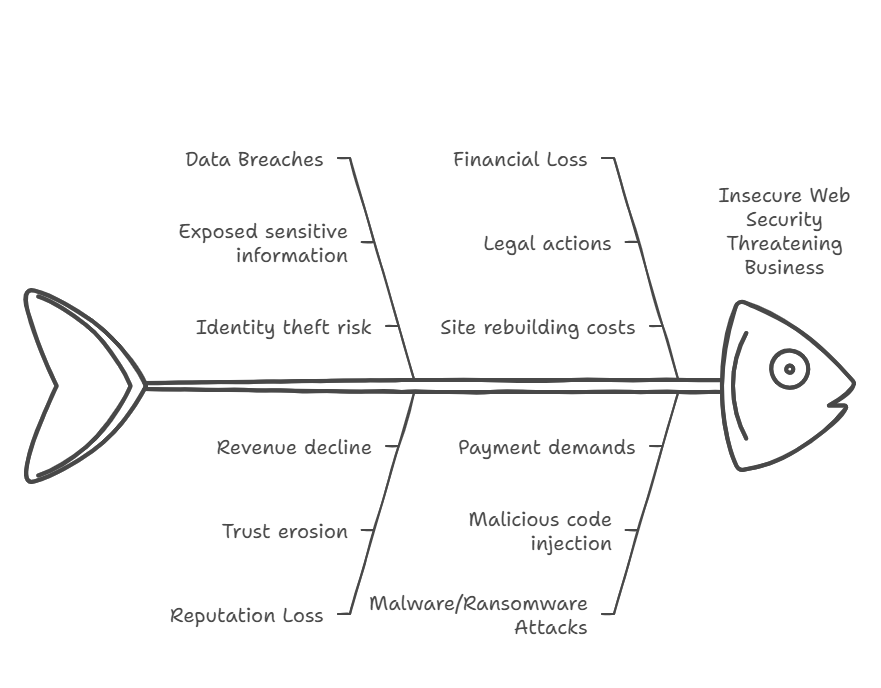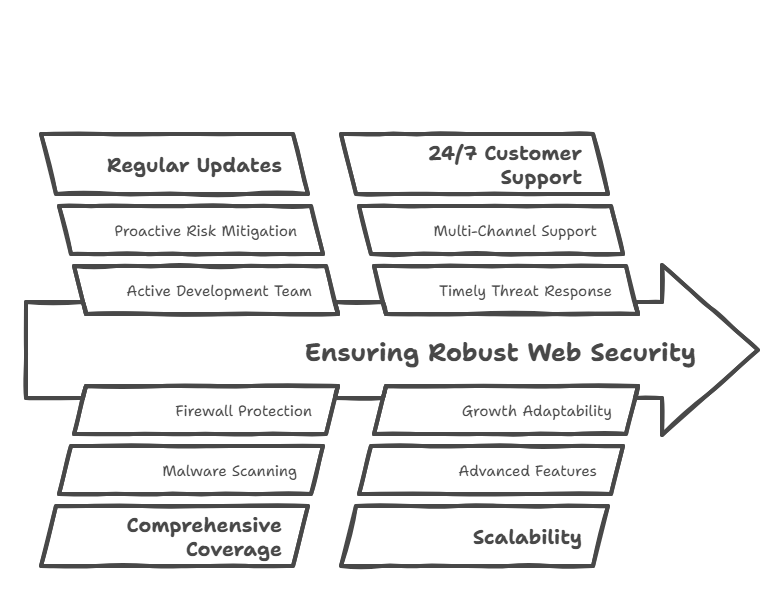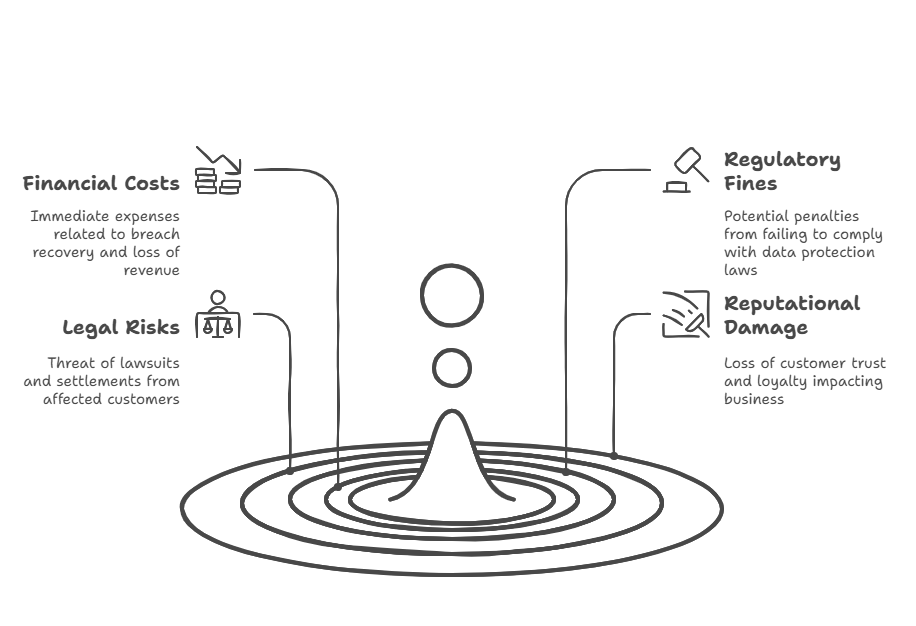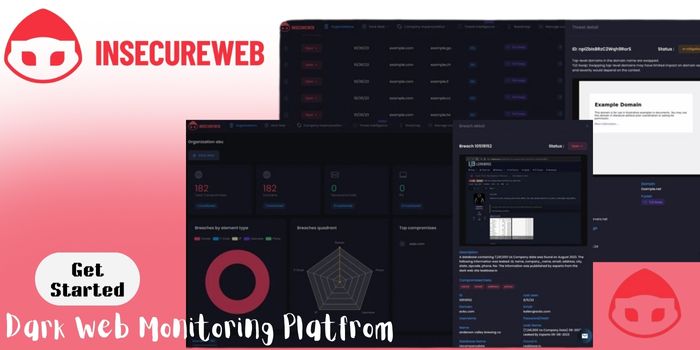In today’s interconnected world, the safety of a website should be a top priority. Businesses and individuals alike rely on their websites to provide services, communicate, and even generate revenue. But what happens when a website is not secured properly? Insecure web security is the main culprit behind many data breaches and cyberattacks. With so many lifetime deals offering tempting discounts on web security services, it’s crucial to understand the risks involved in opting for insecure web security solutions. This article dives into the dangers of insecure web security, especially when paired with lifetime deals, and explains why it’s essential to choose secure, reliable options for safeguarding your website.
What is Insecure Web Security?
Insecure web security refers to a situation where a website is exposed to potential threats due to weak, outdated, or improperly configured security measures. Websites without strong security are vulnerable to hacking attempts, malware infections, data breaches, and other cyberattacks. Without regular updates and proper monitoring, websites become easy targets for cybercriminals. When using insecure web security, businesses risk exposing sensitive customer data, compromising their reputation, and facing legal and financial consequences.
Why Is Insecure Web Security a Growing Concern?
The number of cyberattacks continues to rise globally. Insecure web security is one of the most significant threats businesses face. According to a report by Statista, cybercrime damages are projected to reach $10.5 trillion by 2025. This highlights the severity of the issue. If your website is built on insecure web security foundations, you are essentially handing over valuable data to malicious actors. The consequences can range from loss of customer trust to financial penalties and even irreparable damage to your brand.
Moreover, many security providers offer “lifetime deals,” which may seem like an attractive option. The issue with insecure web security provided through these deals is that they often come with outdated features, limited customer support, and a lack of updates over time. Many businesses and individuals get lured into these deals without fully understanding that they may be investing in an insecure solution that could leave their website exposed.
How Insecure Web Security Puts Your Website at Risk
Choosing insecure web security leaves your website vulnerable to a range of cyber threats. Here are a few key risks associated with weak or insecure security systems:
- Data Breaches: A website’s primary responsibility is to protect user data. Insecure web security can lead to data breaches, where sensitive information like customer names, credit card numbers, and passwords is exposed to hackers.
- Loss of Reputation: If your website is breached due to insecure web security, your brand’s reputation will be seriously damaged. Customers will lose trust in your ability to safeguard their data, leading to a loss of traffic and revenue.
- Financial Loss: Cyberattacks can lead to significant financial consequences. If your website suffers a breach, you may face legal actions, fines, and the costs of rebuilding your site. The financial toll can be crippling for many businesses, especially small enterprises.
- Malware and Ransomware Attacks: Insecure web security allows hackers to inject malicious code into your website. This code could lead to malware infections, which can damage your website or infect your visitors’ devices. Additionally, ransomware attacks can lock you out of your site, demanding payment for access.
- Search Engine Penalties: If your site is compromised, search engines like Google may flag your website as unsafe. This can lead to a significant drop in your site’s rankings and visibility, resulting in fewer visitors and potential revenue loss.

The Hidden Dangers of Lifetime Deals for Web Security
Lifetime deals for insecure web security may seem like an opportunity to save money, but they come with hidden dangers. While the upfront cost may be lower, the long-term consequences can be dire. Many of these deals offer limited support and outdated security solutions. Since the service is offered for a one-time payment, customers might find themselves without access to necessary updates or technical assistance down the line.
- Limited Updates and Patches: Cybersecurity threats evolve constantly. Hackers are always finding new ways to exploit vulnerabilities. If you choose a lifetime deal for web security that offers outdated software, you may not get timely updates or patches when new threats arise. This leaves your website exposed and vulnerable to the latest cyber threats.
- No Ongoing Support: Many lifetime deal offers do not include regular customer support. If something goes wrong with your website security, you may find yourself unable to get the help you need. Without a support team to help you navigate any security breaches or technical issues, your website could remain vulnerable for longer.
- Poor Configuration: Even if you have access to a lifetime deal, the security software may not be configured correctly for your specific website. Generic security services often fail to address the unique needs of different websites, leaving gaps in your website’s protection.
- False Sense of Security: Lifetime deals often come with the promise of one-time protection, but this can lead to complacency. A false sense of security makes website owners believe that they don’t need to worry about security anymore. This can create a dangerous situation where the website is left unmonitored, leaving it open to attacks.
What Makes a Good Web Security Solution?
Instead of opting for insecure web security from lifetime deals, it’s important to invest in a reliable, secure, and up-to-date solution. Here are the qualities of a good web security service:
- Regular Updates: A trustworthy web security service should offer frequent updates to ensure that it is protected against the latest threats. Look for providers that have an active development team that works continuously to keep their security measures up-to-date.
- Comprehensive Coverage: A good security service covers all areas of your website. It should include malware scanning, firewalls, and protection against various types of attacks, such as SQL injection, XSS (Cross-site Scripting), and DDoS (Distributed Denial of Service).
- 24/7 Customer Support: When you face an issue with web security, time is of the essence. A reputable security provider should offer around-the-clock customer support to ensure that any potential threats are quickly dealt with. This support should be available through multiple channels, including live chat, email, and phone.
- Scalability: As your website grows, so will your security needs. A good web security solution should be able to grow with your website, offering more advanced features as your site’s traffic and complexity increase.
- Proven Track Record: Before committing to any security service, research the provider’s history. Look for reviews, case studies, and testimonials from other businesses to ensure that the provider has a proven track record of protecting websites effectively.

How to Protect Your Website from Insecure Web Security
If you’re currently using insecure web security or are considering a lifetime deal for web security, it’s time to take action. Here are some steps to help protect your website from cyber threats:
- Do Your Research: Avoid jumping into lifetime deals without fully understanding the terms and limitations of the offer. Research the provider thoroughly and check reviews from other users to see if their service is reliable and effective.
- Switch to a Trusted Security Provider: Consider switching to a reputable, regularly updated web security provider. These services typically offer better protection, consistent updates, and 24/7 support.
- Regularly Backup Your Website: Backing up your website regularly ensures that you can restore it quickly if something goes wrong. Keep multiple copies of your website’s data on different platforms to reduce the risk of losing everything during a breach.
- Train Your Team: Educate your team about the importance of web security. Train them to recognize phishing attempts, suspicious activity, and other common threats. Human error is one of the biggest causes of security breaches, so awareness is key.
The Financial and Legal Implications of Insecure Web Security
If your website experiences a security breach due to insecure web security, the financial and legal implications can be severe. Businesses may face fines from regulatory bodies, especially if they fail to comply with data protection laws like GDPR (General Data Protection Regulation) in Europe. Additionally, the costs of repairing a compromised website and rebuilding customer trust can be significant. It’s often far more expensive to fix a data breach than to prevent one in the first place.

Conclusion
Investing in insecure web security through lifetime deals might seem like a cost-saving option, but the risks far outweigh the benefits. Exposed websites are vulnerable to cyberattacks, data breaches, and other security threats that can lead to financial loss, reputational damage, and legal consequences. Instead of relying on unreliable, outdated security solutions, choose a reliable, regularly updated security provider that can offer comprehensive protection for your website. Your business’s reputation, customer trust, and financial security depend on the strength of your website’s security.
FAQs About Insecure Web Security
- What makes web security insecure? Insecure web security is caused by weak, outdated, or improperly configured security systems. These leave websites vulnerable to hacking and data breaches.
- Can lifetime deals for web security be trusted? Lifetime deals for web security are often insecure, as they may offer outdated software, lack support, and provide insufficient updates, leaving your website exposed.
- What are the signs of insecure web security? Signs include a lack of updates, poor customer support, website performance issues, and security vulnerabilities that can be easily exploited by hackers.
- How can I protect my website from insecure security? Invest in a reputable security provider, back up your website regularly, educate your team, and stay vigilant for emerging threats.
- What happens if my website is hacked due to insecure security? Your website could suffer from data breaches, reputational damage, financial losses, and potential legal consequences.
Latest Statistics on Web Security
- The global cost of cybercrime is expected to reach $10.5 trillion annually by 2025. Source: Statista
- According to a 2020 report by McAfee, 62% of organizations experienced a security breach in the past year, highlighting the urgency of investing in proper web security. Source: McAfee

